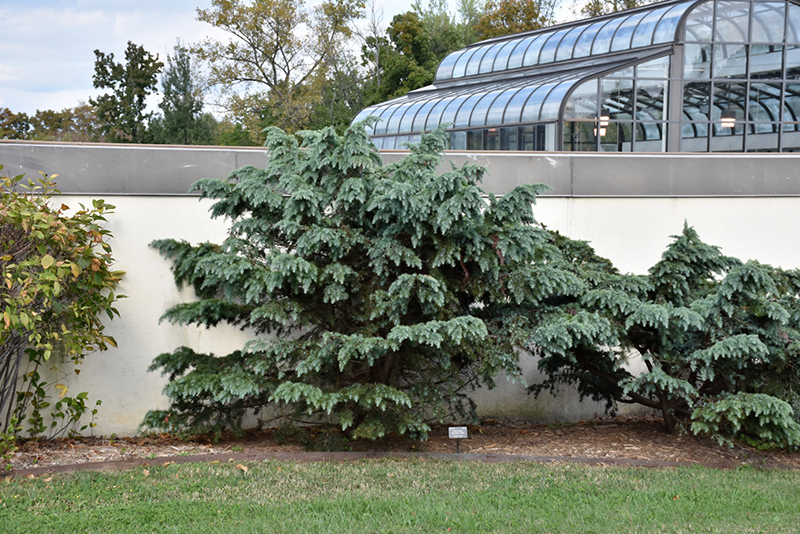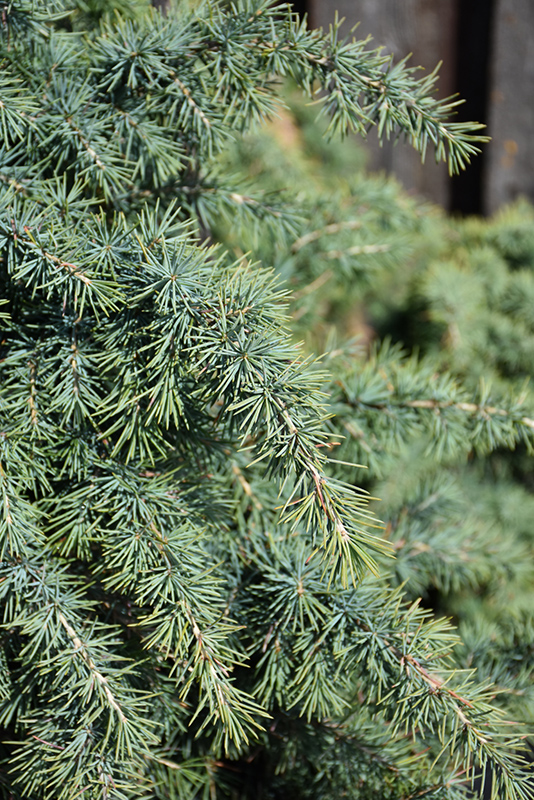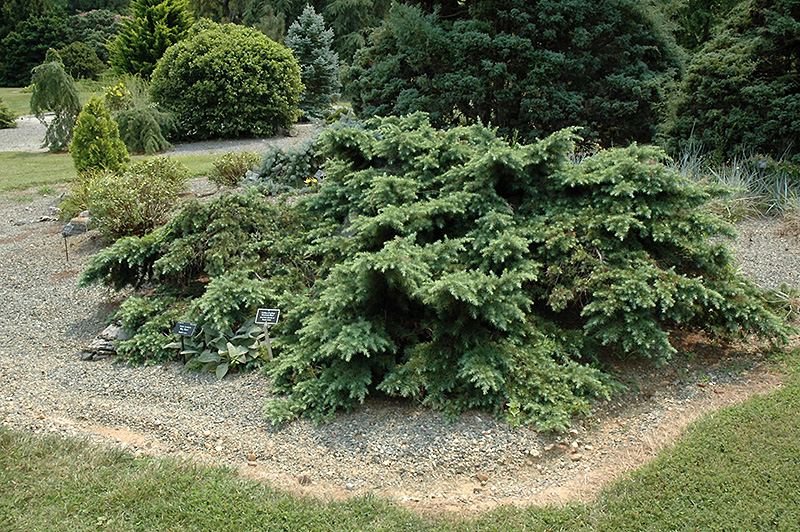>> Home
Divinely Blue Deodar Cedar
Cedrus deodara 'Divinely Blue'
Height: 6 feet
Spread: 6 feet
Sunlight:
![]()
Hardiness Zone: 6
Other Names: Himalayan Cedar
Description:
An attactive tree with a dwarf pyramidal habit of growth, dense branches are covered with interesting blue-green needles; best as an accent tree but can be pruned into irregular forms to compliment the conifer garden
Ornamental Features
Divinely Blue Deodar Cedar is a dwarf conifer which is primarily valued in the landscape or garden for its distinctively pyramidal habit of growth. It has attractive powder blue-tipped bluish-green foliage. The needles are highly ornamental and remain bluish-green throughout the winter.
Landscape Attributes
Divinely Blue Deodar Cedar is a dense multi-stemmed evergreen shrub with a distinctive and refined pyramidal form. Its relatively fine texture sets it apart from other landscape plants with less refined foliage.
This is a relatively low maintenance shrub, and usually looks its best without pruning, although it will tolerate pruning. Deer don't particularly care for this plant and will usually leave it alone in favor of tastier treats. It has no significant negative characteristics.
Divinely Blue Deodar Cedar is recommended for the following landscape applications;
- Accent
- General Garden Use
Planting & Growing
Divinely Blue Deodar Cedar will grow to be about 6 feet tall at maturity, with a spread of 6 feet. It has a low canopy with a typical clearance of 1 foot from the ground, and is suitable for planting under power lines. It grows at a slow rate, and under ideal conditions can be expected to live for 50 years or more.
This shrub should only be grown in full sunlight. It is very adaptable to both dry and moist growing conditions, but will not tolerate any standing water. It may require supplemental watering during periods of drought or extended heat. It is not particular as to soil type or pH. It is somewhat tolerant of urban pollution, and will benefit from being planted in a relatively sheltered location. This is a selected variety of a species not originally from North America.


